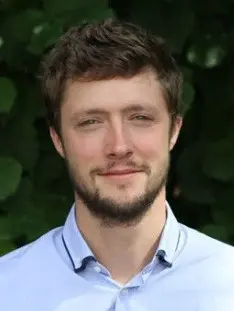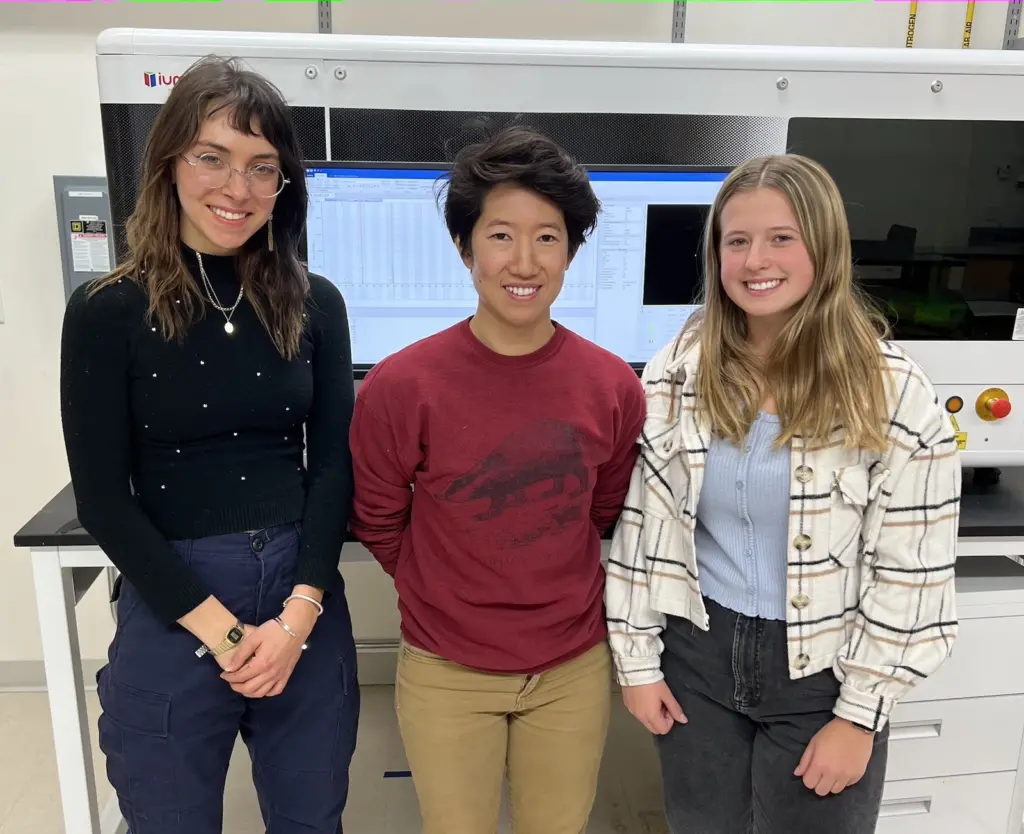When the Palo Alto Research Center was looking for a way to test how its new ceramic material would perform in the harsh, high-temperature environment of a concentrated solar power plant, the California-based research and development company turned to University of Wisconsin-Madison engineers.
 Adrien Couet
Adrien Couet
“UW-Madison is internationally recognized as a leader in testing materials for molten salt technologies in extreme environments due to the expertise of our researchers, our facilities and the high quality of our materials testing systems,” says Adrien Couet, an associate professor of engineering physics.
Molten salts, a class of materials that exist in a liquid state at high temperatures, could enable significant improvements in clean energy technologies. For example, in concentrated solar power plants, heat from the sun can be stored reliably and inexpensively for long periods of time in the liquid. And next-generation nuclear reactors that use molten salt as coolant are a potentially game-changing technology that could enable cost-competitive, safer and more sustainable commercial nuclear power generation.
But first, there’s a need for corrosion-resistant materials that hold up in molten salt environments. To address this challenge, the Palo Alto Research Center has developed a promising ceramic matrix composite material it believes will be up to the task. The company wants to better understand how the material will perform—and that’s where UW-Madison comes in.
In their UW-Madison laboratories, Couet and Kumar Sridharan, Grainger Professor in engineering physics and materials science and engineering, are testing the composite in a high-temperature molten salt environment. What they learn about how the material performs or degrades could help the company scale its manufacturing processes for the material.
 From left: EP PhD students Kailee Buttice and Bonita Goh and MS&E undergraduate Isabelle Baggenstoss research materials for molten salt applications as members of Associate Professor Adrien Couet’s group. Credit: Adam Malecek.
From left: EP PhD students Kailee Buttice and Bonita Goh and MS&E undergraduate Isabelle Baggenstoss research materials for molten salt applications as members of Associate Professor Adrien Couet’s group. Credit: Adam Malecek.
A grant from the U.S. Department of Energy’s Solar Energy Technologies Office is supporting the project, with Couet as a co-principal investigator. It’s one of Couet’s many multi-institutional research projects focused on various aspects of materials development and testing for molten salt technologies. Couet, Sridharan and their UW-Madison collaborators have received a total of $2 million in grants from a variety of funding sources for the new projects.
“It’s important for us to work closely with industry to ensure that our research is relevant and can have real-world impact in the next three to five years,” Couet says. “Climate change is happening now, so it’s crucial to accelerate advances in clean-energy technologies like molten salt nuclear reactors and concentrated solar power systems, and we’re doing that through these research partnerships with industry and national labs.”
Couet says these collaborations also benefit UW-Madison students working on the projects by giving them an opportunity to demonstrate their skills and to build relationships with potential future employers. Two recent alumni of Couet’s lab who worked on a project with TerraPower were hired by the company when they graduated, and many others have gone on to work for nuclear startups and national labs.
Sridharan and Couet are also co-principal investigators on a U.S. Department of Energy Advanced Research Projects Agency-Energy project that aims to develop a superior precipitation-strengthened alloy with improved creep, irradiation and corrosion resistance. The alloy will enable higher-temperature operation (750 degrees Celsius) in molten salt nuclear reactors, fluoride-salt-cooled high-temperature reactors, and concentrated solar power systems. The research team, led by researchers at the University of Tennessee-Knoxville, will evaluate creep, irradiation and corrosion resistance in molten fluorides for several candidate alloys and select one for fabrication. The team will also develop casting, welding and joining processes to fabricate components using this alloy and evaluate its properties in a flowing salt loop.
“This project will benefit industry by decreasing risks associated with new alloy development and significantly accelerating the timeline for commercializing this new alloy for use in clean energy technologies,” Couet says.
In addition, Couet is a co-principal investigator in a DOE Office of Science Energy Frontier Research Center led by Brookhaven National Laboratory to study molten salts in extreme environments. The center, which received four years of renewed funding in August 2022, brings together multidisciplinary scientific teams to tackle the toughest scientific challenges and remove roadblocks to advancing energy technologies. For this research, Couet is developing a faster approach to testing materials in molten salt environments by leveraging machine learning to analyze and make predictions from large amounts of experimental data.
In June 2022, assistant scientist Yafei Wang and Couet received a DOE Nuclear Energy University Program (NEUP) award to lead a project that aims to develop ion probes to determine the optical basicity of molten fluoride salts and study its influence on structural material corrosion. And in another DOE NEUP project, which began in 2021, Sridharan and Couet are using the UW-Madison Ion Beam Laboratory to investigate the coupling of irradiation and corrosion mechanisms in materials.
“Our work across all these research projects spans from basic science to very applied research for commercialization, and it’s exciting to be making key contributions to move these energy technologies forward,” Couet says.
Top image caption: Nuclear engineering PhD student Kailee Buttice, a member of Associate Professor Adrien Couet’s group, conducts research in the lab. Credit: Adam Malecek.